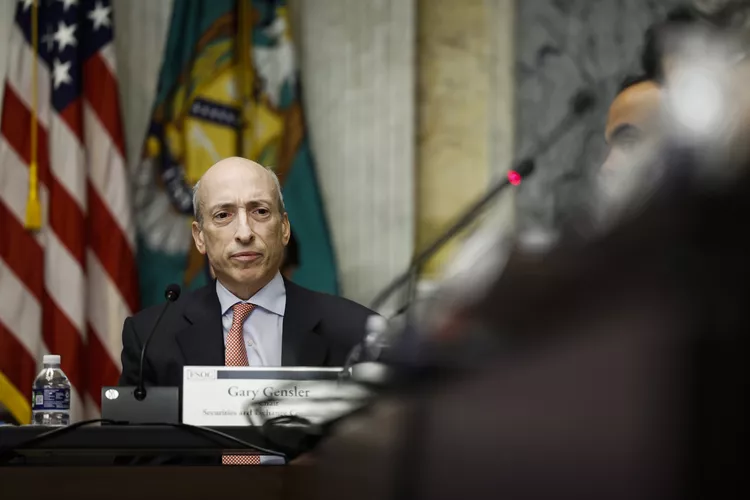Robinhood, Market Makers Vow to Fight SEC Trading Reforms

Robinhood and allied market makers including Virtu Financial have come out against newly proposed rules that, if passed, would amount to the largest change in securities market regulation in over a decade.
Both companies’ shares are down more than 7% since Wednesday’s market open, with Virtu suffering its largest intraday decline since April on Thursday
- The rules are part of a package of four rules that will be the largest change to the regulation of stock trading in over a decade.
- One rule significantly increases disclosure from brokers receiving payment for order flow.
- The other would mandate stock trades go through an auction before they can be executed by market makers under payment for order flow arrangements.

The proposed rules take aim at payment of order flow , the order execution process that many brokerages, including Robinhood, say helps them offer zero-commission trades. One rule would force brokers to show how they obtained the best execution for trades for which they receive payment for order flow.Another would require orders from retail investors to be auctioned off for best execution in public marketplaces, such as a securities exchange, before they could be executed by a market maker The SEC estimates that auctions for execution could save retail investors $1.5 billion annually, or 1.08 basis points of the turnover on such trades.The rule changes pose a threat to the business models of market makers such as Virtu and Citadel Securities, as well as brokers that rely on their payments. Lucas Moskowitz, Robinhood’s deputy general counsel, criticized the SEC’s proposals, telling Bloomberg News they would “resurrect discriminatory barriers to entry and hurt millions of retail investors.” He also complained the proposal’s 60-day public comment period is too short for “a package of this size and complexity.”
On the other end of the spectrum, retail investor advocates argue the SEC should have banned payment for order flow altogether.The SEC says it’s unlikely commission-free trades will disappear if payment for order flow is restricted.Many large brokerages make more from other sources, including margin lending and share loans to short-sellers.
The rules are expected to benefit the public exchanges that would host the execution auctions, including New York Stock Exchange owner Intercontinental Exchange and Nasdaq.The SEC has grown increasingly concerned that the parsing of trading executions among public exchanges, market makers, and dark pools has diminished the transparency of securities trading and raised its costs for individuals.






